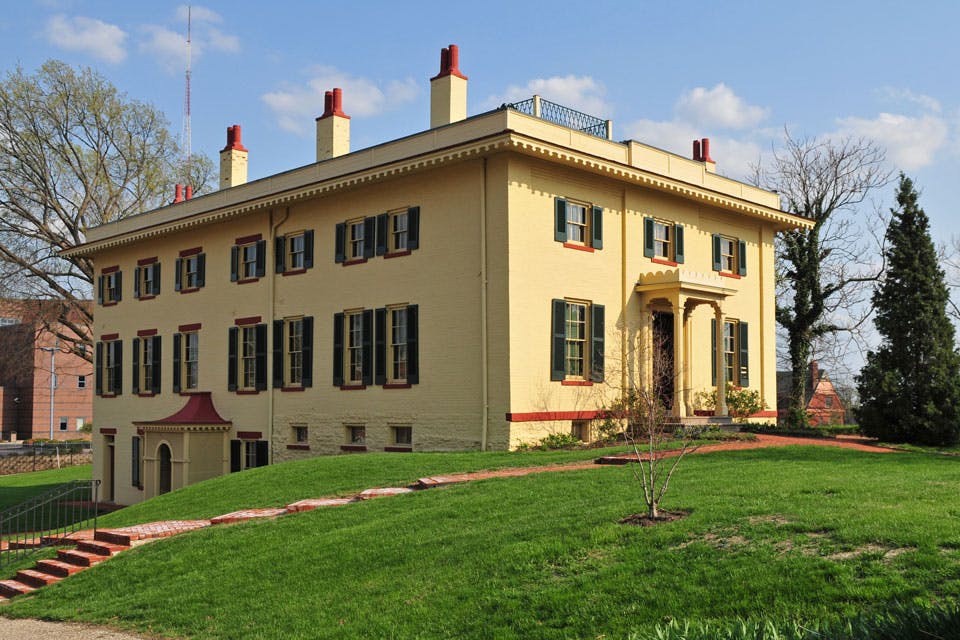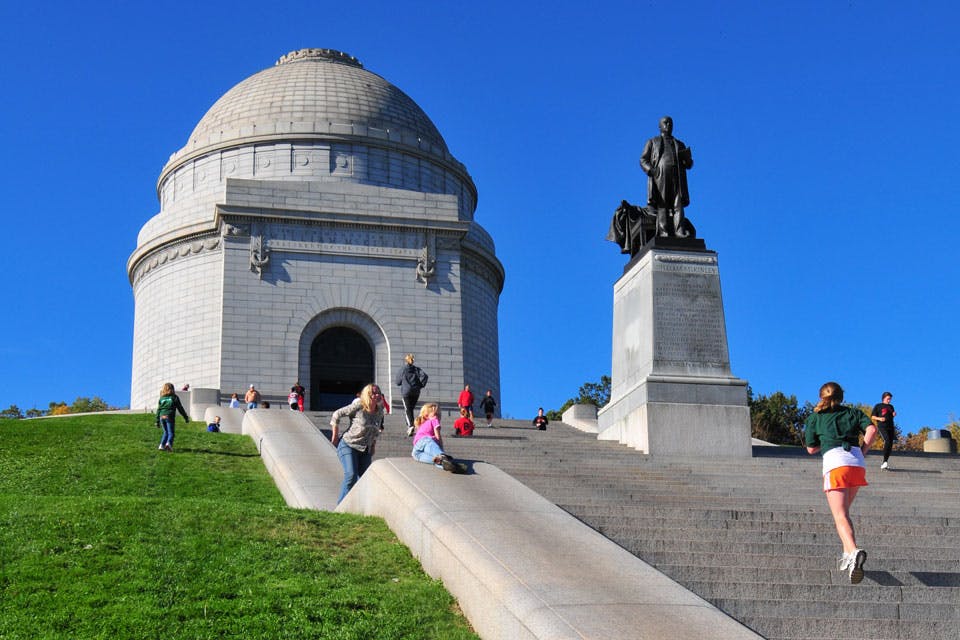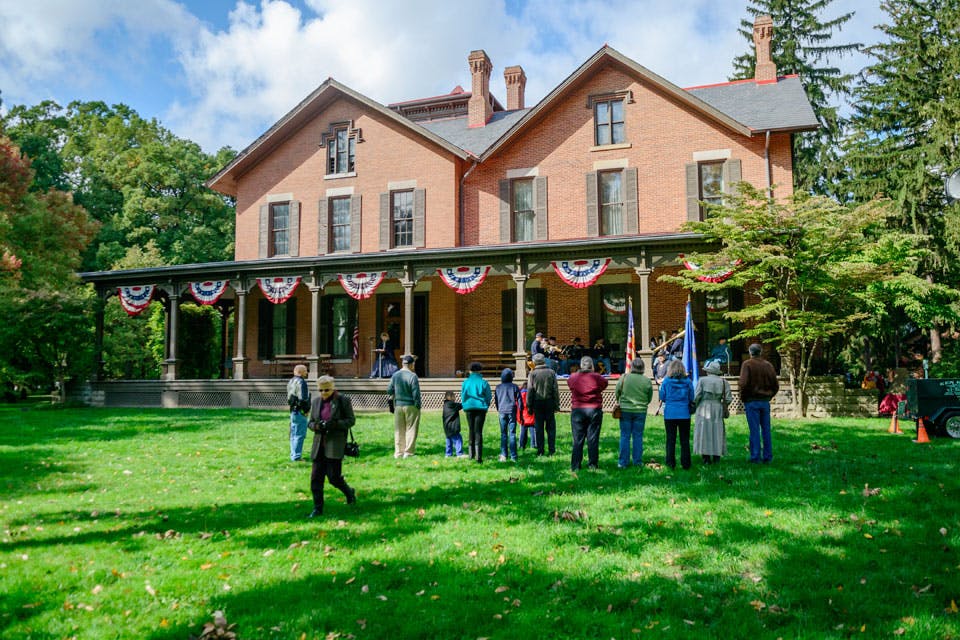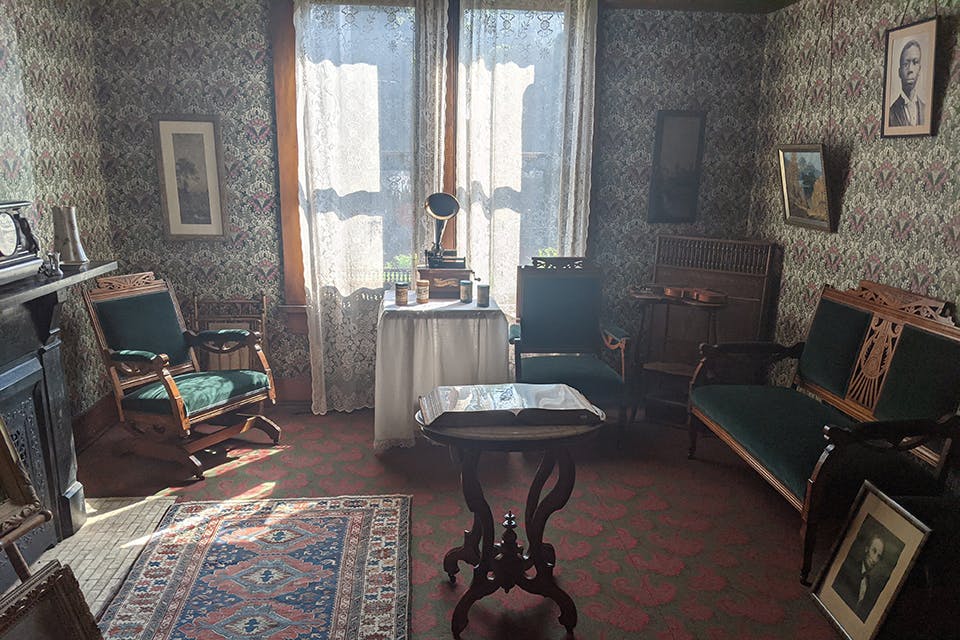Travel
Paul Laurence Dunbar House Historic Site, Dayton
Paul Laurence Dunbar’s Dayton home tells the story of the poet, who achieved acclaim around the world.
Related Articles

Visit the William Howard Taft National Historic Site in Cincinnati
Our 27th president spent his formative years at this hilltop residence in a neighborhood built for the city’s social elite. Today, the restored home shares his story. READ MORE >>

Visit the William McKinley National Memorial in Canton
Our nation's 25th president is honored with an ornate monument that serves as his final resting place. An adjacent museum tells the story of his presidency and Stark County. READ MORE >>

Visit the Rutherford B. Hayes Presidential Library and Museums in Fremont
Webb Hayes’ tribute to his parents at the northwest Ohio estate they called home was the nation’s first presidential library and museum. READ MORE >>


